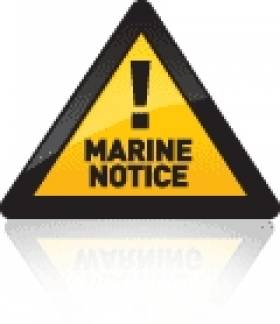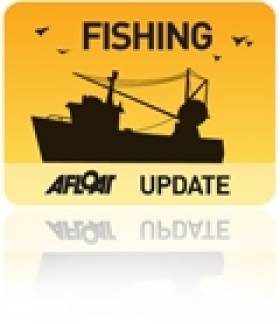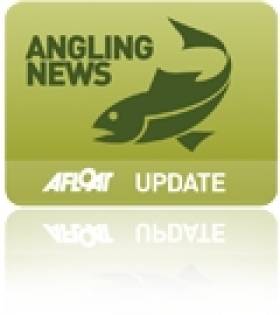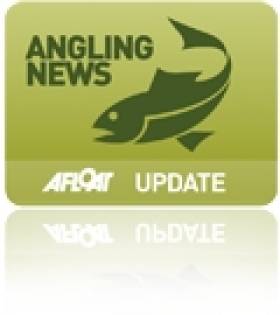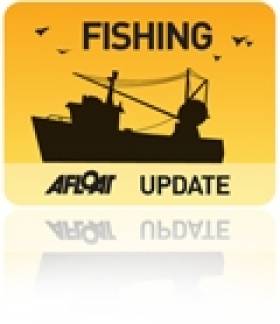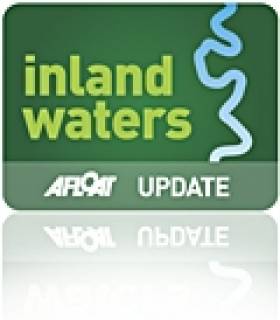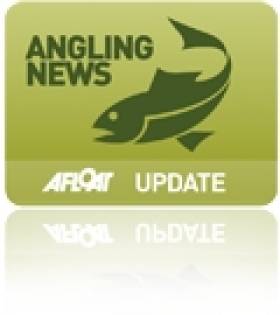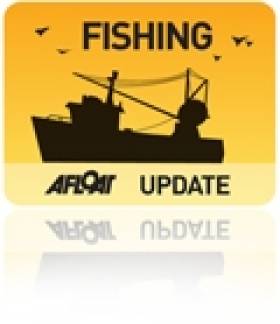Displaying items by tag: licence
The European Commission is surveying industry and private boat owners regarding the mutual recognition of private boater licences.
Consultancy firm Panteia is collaborating with the Commission on a study to determine the advantages and drawbacks of recognising licenses and qualifications for private boaters across Europe.
Panteia has developed two surveys: one tailored for industry and one for the general public. The average response time for both surveys is five minutes.
These surveys aim to collect qualitative feedback and quantitative data to gain a comprehensive understanding of the current landscape of license recognition. Responses are requested by Wednesday 10 April.
Are you Towing your Boat with the Correct Driving Licence?
#towing – Laws about towing boats and trailers in Ireland has been considered a bit of a grey area by some sailors who hope for the best every time they hitch up but now the Road Safety Authority has announced that a person who held a full driving licence for a car before 13 November 1989 and who did not then avail of the car and trailer licence option may now do so.
A car licence allows you tow up to 750kgs but if you tow a bigger weight without the correct licence you could be driving uninsured.
To establish whether a driver is entitled to apply for the car and trailer licence the Road Safety Authority (RSA) must be satisfied that the driver held the car licence before 13 November 1989 and this initial assessment is being carried out by the RSA. You must have been born before 13 November 1972 and have held a full driving licence for a car before 13 November 1989 in order to apply.
A person who believes that s/he is now entitled to the car and trailer licence should now take the following steps-
Complete an Initial Assessment Form.
Once completed, you can return the form to the Road Safety Authority, Ballina, Co. Mayo.
The RSA will carry out its assessment and advise you of the outcome. If the initial assessment is positive you must then formally apply for the licence. Any person who wishes to be considered must complete the Initial Assessment Form here and return it to the RSA by Friday 8 November 2013.
Applications For 2014 Oyster Dredge Licences
#Oysters - Fishermen wishing to apply for oyster dredge licences for the 2014 season must apply on the official form to the relevant River Basin District Office before 12 noon on Monday 18 November 2013.
This new process has become necessary due to the fact that there are many Special Areas of Conservation (SACs) and Natura 2000 sites in Ireland that also contain oyster fisheries.
As the exploitation of these fisheries will requires dredging, appropriate assessment of these fishing activities will have to be undertaken. In the absence of appropriate assessments, against predetermined conservation objectives, it is necessary to ensure that no intensification of the fishing activity for oysters be permitted.
This has been further strengthened by the issuing of a direction from the Minister in accordance with Section 278 (5)(a) of the Fisheries (Consolidation) Act 1959 as amended and the Habitats Directive as transposed by European Commission (Birds and Natural Habitats) Regulations 2011 (SI 477/ 2011).
Further information as well as the official application procedure and application form are available HERE.
#ANGLING - Plans to bring forward the estuary draft net season "would have a detrimental effect" on spring salmon stocks, writes Derek Evans in The Irish Times today.
Evans was responding to proposals before Minister of State for Natural Resources Fergus O'Dowd to extend the draft net season from its current start date of 12 May to mid-April.
"At a time when we are beginning to see the benefits of the 2006 drift net closure coming to fruition in terms of salmon returning to our lakes and rivers," he writes, "is it not absolutely unreasonable to even consider such an application?"
He referred to anglers who have "played their part" by sticking to a "suite of regulations" introduced by the State in an effort to conserve river stocks, which include a doubling of the salmon licence fee and an annual bag limit restricted to 10 fish.
Spring salmon angling is also a significant attraction for tourism, he suggests, and any threat could damage that business.
The minister's office has issued a statement saying there no proposal currently under consideration to bring forward the start date.
NI Anglers Take to Facebook to Save Their Salmon
#ANGLING - Northern Ireland river anglers are taking a novel approach to lobbying Stormont over salmon exploitation by harnessing the power of social networking.
According to the News Letter, the NoSalmonNets campaigners "have swapped their fishing rods for laptop computers", using Facebook to attract support for their campaign to bring an end to the offshore netting of wild salmon stocks.
As previously reported on Afloat.ie, Northern Ireland's Department of Culture, Arts and Leisure (DCAL) has called for a voluntary ban on offshore salmon fishing, following new research that shows a significant drop in their numbers in the North's rivers.
Seamus Donnelly of NoSalmonNets has welcomed DCAL's recent decision to stop issusing licences for commercial salmon nets that may "contravene European law" off Antrim's north coast, made in an effort to protect salmon stocks in the Foyle river system.
Donnelly explained that the campaign was borne from frustration at the apparent inaction by the NI Executive over the protection of salmon.
“One of the keys to our success has to be Facebook," he said. "The internet has an unlimited reach and we took advantage of that.”
The News Letter has more on the story HERE.
Management Plan for Galway Bay Fisheries On Track
#GALWAY BAY - Galway Bay FM reports that the National Parks and Wildlife Service is to work with the Marine Institute towards completing a management plan for Galway Bay.
It comes two weeks after a group of oyster fishermen met Minister for Natural Resources Pat Rabbitte at Leinster House to voice their concerns over a cap on oyster dredging licences.
As previously reported on Afloat.ie, local fishermen in the inner Galway Bay-Clarinbridge area are concerned that their livelihoods are at risk after the European Union ruled that there is over-intensification of fishing at the oyster bed.
Only 13 dredging licences have been issued this year, and EU Directives prevent their further issue until a fisheries management plan is introduced.
Galway West Senator Fidelma Healy-Eames says steps are being made to get the management plan on track.
Galway Oystermen Meet Minister Over Licence Cap
#FISHING - Fishermen from Galway met Minister for Natural Resources Pat Rabbitte at Leinster House yesterday to voice their concerns over a cap on oyster dredging licences, Galway Bay FM reports.
Local fishermen in the inner Galway Bay-Clarinbridge area are concerned that their livelihoods are at risk after the European Union ruled that there is over-intensification of fishing at the oyster bed.
Only 13 dredging licences have been issued this year, and EU Directives prevent their further issue until a fisheries management plan is introduced.
Bidding Begins for Shannon Harbour Houseboat Berths
#SHANNON - Waterways Ireland has just released details of its scheme for renting berths for houseboats on the Grand Canal at Shannon Harbour.
Under the scheme, boaters can rent one of eight fully-serviced berths for their houseboat on a 12-month extended term licence running from 15 March 2012 to 14 March 2013.
Amenities on-site include electricity supply, access to pumps and clean water, shower facilities and limited car parking. Pre-paid smart cards are required to utilise some facilities.
As space is limited, the berths will go to the highest bidders, with the minimum acceptable bid set at €1,250 (a security deposit of €250 is required).
It is expected that licence holders will live on board their vessels as their main residence. Winning bidders are also expected to arrange their own refuse collection from the site.
The closing date for bids is 23 February 2012. The Waterways Ireland website has the application form plus more information about the scheme and details of the licence agreement.
NI Taxpayers Could Foot the Bill for Fines Over Dwindling Salmon Stocks
#ANGLING - Northern Ireland's taxpayers could be left with a bill for millions in EU fines if action isn't taken to reverse the decline of salmon stocks, the News Letter reports.
Ulster Unionist MLA Robin Swann said he believes that voluntary measures to help protect the North's Altantic salmon will not remove the threat of "fines which would likely run into millions which [the people of NI] will end up paying".
As previously reported on Afloat.ie, NI's Fisheries Minister Carál Ní Chuilín called on offshore anglers and commercial fishermen to forego applying for 2012 salmon licences.
Annual monitoring of the North's salmon rivers has shown a failure to reach targets most years since 2002, with the survival rate of salmon in the marine phases in some cases dropping to as little as 5%.
Coastal drift nets and bag nets off the north Antrim coast - which contravene EU directives - have been blamed for intercepting salmon stocks before they reach the rivers, and anglers and conservation groups have already called for a ban.
But Swann says that Department of Culture, Arts and Leisure (DCAL) does not yet have the legislative power to stop them.
The News Letter has more on the story HERE.
Licence Application for Aran Islands Fish Farm 'To Be Lodged in January'
#FISHING - The licence application for a proposed new deep-sea fish farm in the Aran Islands is expected to be lodged in January.
As previously reported on Afloat.ie, Bord Iascaigh Mhara's (BIM) planned 15,000-tonne organic salmon farm off Inis Oírr would be the largest of its kind in Europe, and would create hundreds of jobs in the area.
Commenting on the plans, Galway West Senator Fidelma Healy Eames said it was "a major opportunity for Galway and would represent a very significant economic boost for our coastal communities."
She added: "Deep sea fish farming has proven to be very economically beneficial in countries such as Norway, Chile and Scotland. It is timely that Ireland would capitalise on our fantastic marine resources as these countries have."
According to Healy Eames, the project is expected to "meet all environmental standards and will be barely visible from 2km away and effectively not visible from land.
"It would take up a negligible amount of inshore fisheries ground in the bay (0.22%) and would not interfere with existing fishing routes or Galway Bay ferry routes."


























